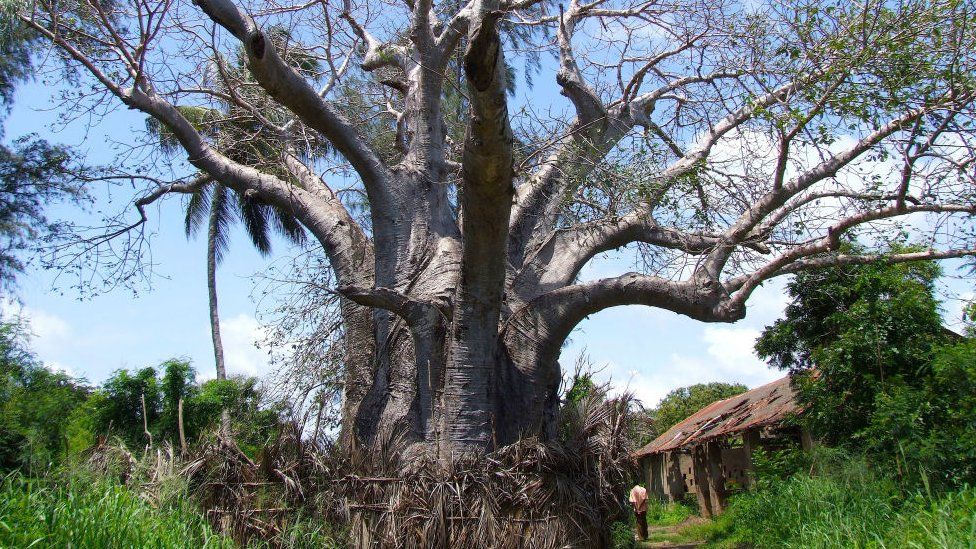 Getty Images
Getty ImagesKenya has cancelled a licence issued to a foreign company to uproot and export baobab trees from the coastal region amid public outcry.
The Georgian company bought eight of the giant trees from local farmers.
Environmental experts have described the planned export of the trees as “biopiracy”.
Authorisation for uprooting the baobabs, which can live up to 2,500 years, was not properly obtained, the environment minister said.
Some farmers in Kilifi county reportedly wanted to clear their land to plant maize.
They sold the trees growing in their private land for between $800 (£670) and $2,400, the UK’s Guardian newspaper reported.
It’s unclear how old the trees were, but pictures shared online show uprooted trees with huge tree trunks and branches.
“We have agreed that the baobab trees should not be exported until the agreements between the parties are properly regularised,” Environment and Forestry Minister Soipan Tuya said on Monday.
The minister’s statement did not mention if all the eight trees have been uprooted, but added that action would be taken against state agents who approved the sale.
The UK Guardian news site reported in October that the cut baobab trees had been put in metal cages in Kilifi and were being guarded by security officers while awaiting export.
The trees were reportedly being transferred to a botanical garden in Georgia. There is also a big market for baobabs in Australia and South Africa.
There is concern that removal of baobabs could have a serious ecological impact as numerous species of insects, reptiles and birds rely on the trees for habitat.
Baobab fruits are also rich in vitamin C, antioxidants, calcium, potassium and fibre, which has seen them hailed as a superfood. The tree’s bark also has medicinal properties and is used in beauty products.
Baobabs can withstand adverse climatic conditions. They grow in the African savannah and some tropical areas and the baobab is said to be the longest-living flowering tree on Earth.
The species is also known as the upside down tree because of its stretching canopy resembles a root system. It produces whitish flowers which bloom at night, and its edible fruit can be up to a foot long.
